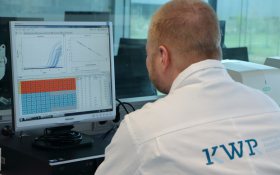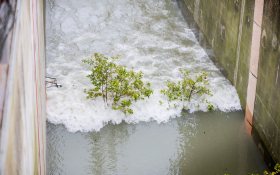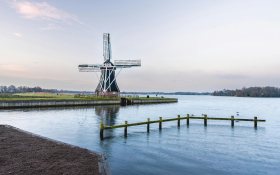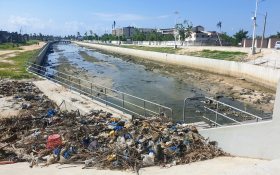AIWW 2019: Breaking the barriers on climate complacency
“People are not aware that climate change is already happening,” comments Professor Kenzo Hiroki, coordinator of the High-Level Experts and Leaders Panel on Water and Disasters. “Because of that, they encounter disasters of a scale they have not anticipated.”

Professor Hiroki, who is at the National Graduate Institute for Policy Studies in Tokyo, Japan, will be speaking at this year’s Amsterdam International Water Week. Participating city leaders in particular will be some of those who are most aware of climate concerns. But they must still face the question of how to respond to this threat.
Climate change and the force of nature
Most disasters are related to water in some way, and disaster preparedness is part of a wider need for city resilience. Professor Hiroki sees that the worst effects of disasters are largely preventable, if there is awareness that they can occur at any time. He describes water-related disasters as being a natural event following which water carries the force of nature to where it has impact. “There is a time lag between the event and the incoming force,” he says. “You can make use of that time lag to act to save your life, to save your cities and your neighbourhoods.”
One of the biggest barriers to greater preparedness for climate-related disasters is complacency, believes Professor Hiroki. “Even risk management institutions can be complacent if they have dealt with events in the past, without being aware that climate change has changed the name of the game,” he says.


The HELP panel
Governance systems may have been in place for one or more decades, explains Professor Hiroki. They need to be improved, as they may not now be able to cope. “There is a need first to understand that climate change has happened, that the world is different to even ten years ago,” he says.
This explains one of the biggest current priorities of the HELP panel, which was convened at the request of the UN Secretary-General’s Advisory Board on Water and Sanitation. “The first thing is governance, the awareness of the leaders – presidents, prime ministers, heads of state. If they are not aware that the name of the game has changed, they will not tell officials and the managers of disasters to change their behaviour and be more prepared,” says Professor Hiroki. “So we have to start by elevating the awareness of leaders.”
This also makes city-to-city exchanges on the issue of disasters vitally important. The more severe an event, the less likely it is to happen. So, while a particular city might not have direct experience, there will be others who have had to deal with comparable situations, explains Professor Hiroki. “By sharing experiences, a city can feel like it has already had a disaster and simulate it for itself to be prepared,” he says. “That is why experiences of cities that have encountered unfortunate incidents are extremely valuable for other cities.”
This applies too to the mayors or city leaders who have to make the decisions in times of crisis. “At a time of crisis, people’s lives depend on that one decision maker,” says Professor Hiroki. That mayor may only just have been elected. “So mayors have to learn quickly from other cities,” he adds.
Shaping new cities
AIWW is playing its part in this process. “Cities have many different functions and are living things,” says Professor Hiroki. “I am only talking about crisis and their bad side,” he says. He points to the many positives and new opportunities for cities. “The people coming to AIWW can learn about the shift in the paradigms on many things, and then take part in the shaping of new cities.”
www.dutchwatersector.com is media partner of the Amsterdam International Water Week Conference (AIWW). Registration for the AIWW Conference is now open, please check the website.











